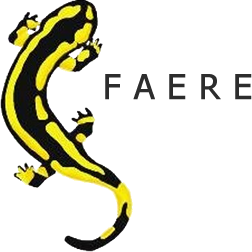Health determinants of modal choice – 6 months
Missions
A choice experiment was conducted to assess the role of health information in modal choice in the Grenoble metropolitan area. The health information focused on the health risks associated with air pollution from cars (the collective risk of developing cardiovascular disease for the entire population of Grenoble) and the individual health benefits of adopting active mobility due to the physical activity involved in walking and cycling (reduced risk of developing cardiovascular disease).
This choice experiment is unique in that it frames the information and presents the reduction in health risk in quantitative terms, making it possible to study potential free-rider or conformist behavior and risk perception. The data has been collected and the initial econometric analyses carried out.
The two main objectives of the fixed-term contract are:
– firstly, to assess the impact of individual and collective health information on the choice of transport mode, based on a discrete choice experiment conducted among the population of the Grenoble urban area,
– secondly, to compare, at the level of the Grenoble metropolitan area, the potential health benefits associated with modal shifts resulting from the provision of health information and willingness to pay.
Activities
– Conduct a literature review on the health determinants of sustainable behavior choices
– Analyze data from the choice experiment
– Translate the results of the choice experiment into health risk reduction for the population of an urban area as a whole in relation to this type of information
– Finalize the drafting of an article
Skills
Recommended education:
– PhD in economics
Required skills:
– Discrete choice models
– Proficiency in statistical software (Stata, R, or Python)
Working Context
The successful candidate will be based in Grenoble at the GAEL laboratory (Laboratoire d’Economie Appliquée de Grenoble), a joint research unit between the CNRS, INRAE, the University of Grenoble Alpes, and Grenoble INP, comprising approximately 70 staff members.
GAEL’s research focuses primarily on issues of sustainable innovation and consumption, particularly in the energy and agro-industrial sectors. The research is organized into three areas: Consumption, Energy/Environment, and Innovation. The candidate will join the Energy/Environment area. The research conducted within GAEL’s Energy/Environment department aims to understand and evaluate the impact of policies in the fields of energy and climate. The team conducts high-level research in applied and academic economics and enjoys high visibility at the national, European, and international levels.
The successful candidate will report to Sandrine Mathy, CNRS Research Director, Carole Treibich, Senior Lecturer at GAEL, and Hélène Bouscasse, INRAE Research Fellow at CESAER (Dijon).
Contraintes et risques
Nature of the job : Post-doc
Contact person : Mathy, Sandrine,
Application deadline : 16/10/2025
